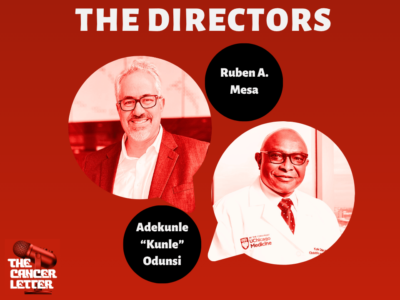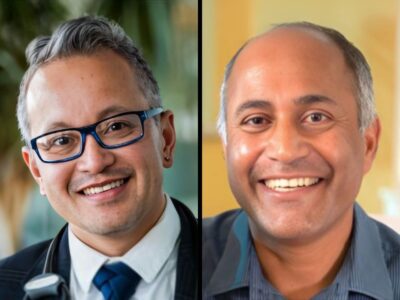Substantial delays are taking place across the cancer care pathway in Nepal, with many patients waiting months between first symptoms and treatment, according to an article by the International Agency for Research on Cancer and partners.
At a time when federal immigration policies are becoming stricter, Kunle Odunsi, director of University of Chicago Medicine Comprehensive Cancer Center, reflected on the fact that cancer research is a highly international community.
Study finds no correlation between cancer burden in catchment areas and cancer centers’ CCSG funding
When the idea of looking at cancer center funding and the cancer burden of cancer center catchment areas came to us in the summer of 2024, we lived in a different context.
In recent months, federal policies have stripped away funding for research on sexual and gender minoritized (SGM) communities and blocked the collection of data related to gender.
UPMC Hillman Cancer Center at Zabok General Hospital in Croatia is expanding access to the most advanced radiosurgery services for people across the country with the introduction of the Varian TrueBeam stereotactic body radiation therapy and stereotactic radiosurgery system. The new system delivers radiosurgery treatment with pinpoint accuracy and image-guided precision in a shorter amount of time than current conventional treatments.
The fight against lung cancer is evolving, with groundbreaking research shedding light on the intricate interplay between biology, environment, and health disparities.
Mary Beckerle, a whitewater kayaker, has advice for all the folks in the cancer field: never catastrophize, never panic.
Our Hispanic community is a vibrant and essential part of the American tapestry, contributing richly to the country’s society, culture, and economy. Yet, when it comes to healthcare, this community grapples with significant disparities, especially in cancer care.
Clairity Inc. received FDA De Novo authorization for CLAIRITY BREAST, a novel, image-based prognostic platform designed to predict five-year breast cancer risk from a routine screening mammogram. With this authorization, Clairity is planning to launch among leading health systems through 2025—propelling a new era of precision medicine in breast cancer.
Artera, the developer of multimodal artificial intelligence-based prognostic and predictive cancer tests, announced the publication of a validation study in the JCO Clinical Cancer Informatics on Artera’s MMAI model.











